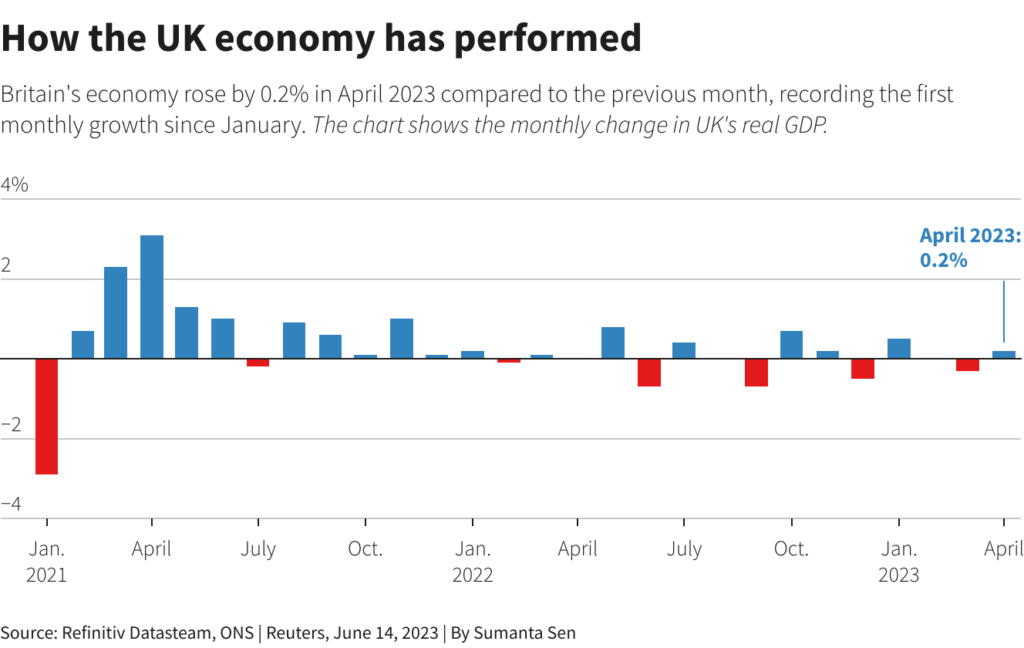[1/2] People walk on Oxford Street in London, Britain April 10, 2023. REUTERS/Anna Gordon
LONDON, June 14 (Reuters) – Retailers and the film industry helped Britain’s economy inch higher in April, despite contractions in manufacturing and construction, according to data on Wednesday that pointed to slow growth rather than recession.
Britain’s economy grew by 0.2% month-on-month in April, the Office for National Statistics said, matching the consensus in a Reuters poll of economists.
Financial markets showed little reaction to the figures – in contrast to recent labour market and inflation data which boosted expectations for higher interest rates from the Bank of England.
Wednesday’s data chimed with business surveys that point to weak activity – but no recession which had been widely predicted only a few months ago.
Over the three months to April, Britain’s economy expanded just 0.1% – a “low growth trajectory” according to the British Chambers of Commerce.
“Looking ahead, we continue to expect GDP in Q2 as a whole to be unchanged from Q1,” said Samuel Tombs, chief UK economist at consultancy Pantheon Macroeconomics.
“Public sector strikes have continued to rumble on, and the lost working day for the King’s coronation probably inflicted a 0.2 percentage point blow to GDP in May,” Tombs added.
The health sector was the biggest drag on growth in April, when there were four days of junior doctor strikes, the ONS said.
In response to Wednesday’s figures, finance minister Jeremy Hunt said the government would stick to its plan to halve inflation this year.
The ONS said the economy in April stood 0.3% above its pre-pandemic level of February 2020.
Services output rose 0.3% on the month, with the wholesale and retail trade the biggest driver of growth. Information and communications was the next largest contributor, with the film and TV industry a particular highlight.
But manufacturing output dropped 0.3% and the construction sector contracted unexpectedly by 0.6%, the figures showed.
Graphic by Sumanta Sen; editing by William James, Sarah Young, Kate Holton and Andrew Heavens
: .


